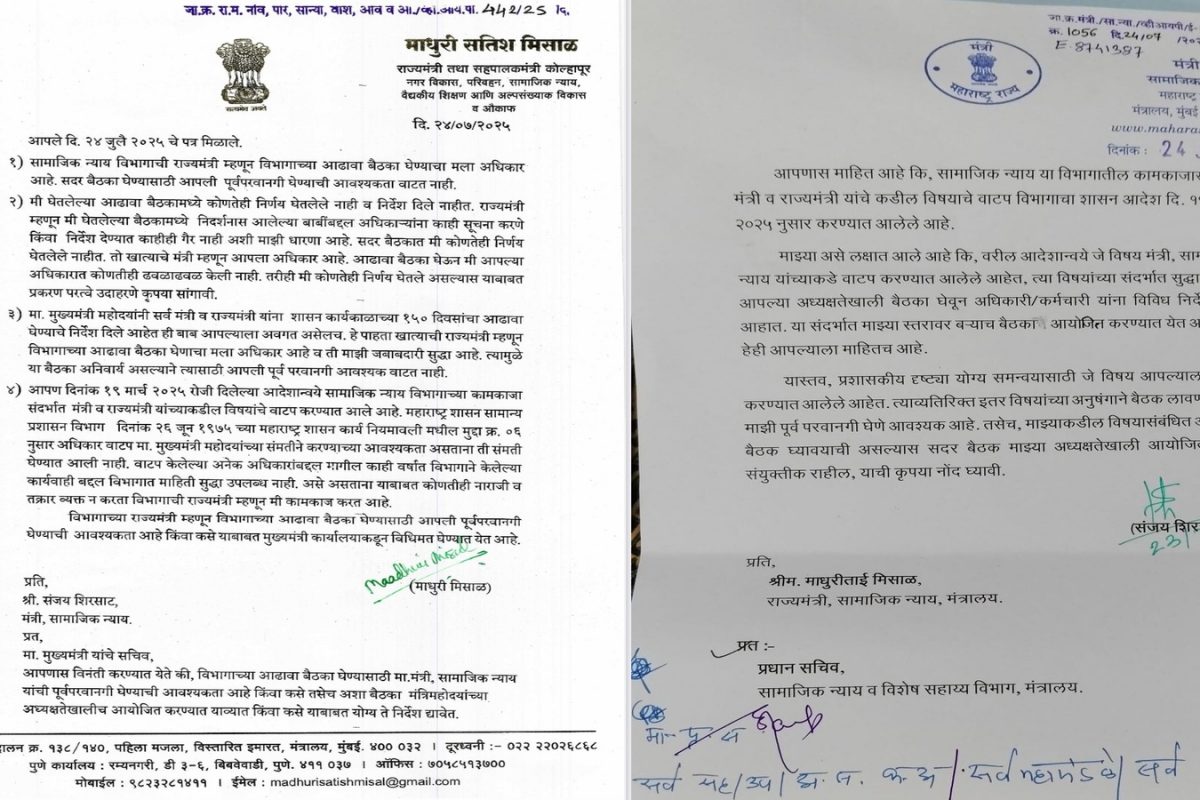

Cracks are appearing within Maharashtra's ruling Mahayuti coalition, not through public rallies or media statements, but through official correspondence, exposing a "letter war" between ministers over departmental meeting protocols. This unusual dispute highlights the tensions simmering beneath the surface of the alliance, comprised of the Bharatiya Janata Party (BJP), Shiv Sena, and Nationalist Congress Party (NCP).
The core of the issue revolves around the perceived lack of consultation and coordination in departmental decision-making. Several ministers have reportedly voiced concerns, through formal letters, that their colleagues are conducting meetings and making crucial decisions without adequately informing or involving them. This has led to accusations of departments overstepping their boundaries and a general breakdown in communication, impacting the efficiency and collaborative spirit expected within a coalition government.
While specific details of the letters remain confidential, sources suggest that the ministers feel sidelined in decisions that directly affect their portfolios. This perceived exclusion has triggered a sense of unease and mistrust, prompting them to formally register their objections. The act of resorting to written complaints, instead of resolving the issues through internal discussions, underscores the severity of the discord.
The implications of this "letter war" are far-reaching. Firstly, it exposes the fragility of the Mahayuti alliance, which was formed after a period of intense political maneuvering. The coalition's stability depends on the ability of its constituent parties to work together, respecting each other's mandates and maintaining open lines of communication. The current dispute suggests a failure in this regard, raising questions about the long-term viability of the government.
Secondly, the conflict could potentially impact governance and policy implementation. If ministers are not on the same page regarding departmental matters, it can lead to confusion, delays, and even conflicting decisions. This can ultimately affect the delivery of public services and the overall development agenda of the state.
In response to the growing unease, Deputy Chief Minister Ajit Pawar has appealed to state ministers to voice their concerns in cabinet meetings rather than making public statements. He emphasized that cabinet meetings, attended by the Chief Minister and Deputy Chief Ministers, are the appropriate forum to resolve disagreements and ensure unanimous decisions. Deputy Chief Minister Eknath Shinde supported Pawar's stand, characterizing the issue as internal and assuring the public that it would be resolved within the Mahayuti alliance.
However, the "letter war" suggests that these internal mechanisms may not be functioning effectively. The fact that ministers have chosen to communicate their grievances through formal letters, rather than through established channels, indicates a lack of confidence in the existing system. This raises questions about the leadership's ability to mediate disputes and foster a sense of unity within the coalition.
The opposition parties are closely monitoring the situation, ready to capitalize on any signs of instability. They have criticized the government for its internal conflicts and questioned its ability to provide effective governance. The upcoming monsoon session of the state legislature is likely to see the opposition raising these issues, putting further pressure on the Mahayuti government.
To ensure the smooth functioning of the government and maintain public trust, the leaders of the Mahayuti alliance need to address the root causes of this "letter war". This requires fostering greater transparency, promoting open communication, and ensuring that all ministers feel valued and included in the decision-making process. Failure to do so could further erode the coalition's cohesion and undermine its ability to deliver on its promises to the people of Maharashtra.